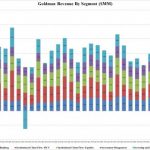This was a light week of news. But, there were two major developments: the G20 urged its members to coordinate a global stimulus plan:
The Group of 20 nations must plan now for a coordinated stimulus program to keep a slowing global economy from stalling, International Monetary Fund staff said in a report on Wednesday.
The report was prepared for senior G20 officials who are meeting in Shanghai later this week amid falling equity markets, volatile currencies and signs of economic weakness throughout the world.
“The G20 must plan now for coordinated demand support using available fiscal space to boost public investment,” IMF staff said in the report.
This, of course, won’t happen. But it’s an acknowledgment that there are potential issues with the global economy.Additionally, Citigroup issued a warning regarding global growth:
The growing threat to the global outlook rests on poor fundamentals, which include the pre-existing fragilities related to the structural and cyclical slowdowns in China and its unsustainable currency regime, broken EM growth models, excessive leverage across many countries and sectors, and rising regional risks (Brexit) and geopolitical risks (including in Russia, Turkey and Syria, the South China Sea, and North Korea).
These fundamental concerns are aggravated by a crisis of confidence that is in part fueled by a growing worry that, should conditions deteriorate, they may not elicit an effective policy response. The main ‘game changers’ in our view are the emerging belief that even the US economy is no longer bullet-proof and that policymakers (in the US and elsewhere) may not be there to come to the rescue of their own economies, let alone the world economy, by propping up asset prices and aggregate demand. It is likely, in our view, that global growth will this year once again underperform (against long-term trends and previous year forecasts). Citi’s latest forecasts are for global growth of 2.5% in 2016 (based on market exchange rates and official statistics) and around 2.2% (adjusted for probable Chinese mismeasurement). But in our view, the risk of a global growth recession (growth below 2%) is high and rising.













Leave A Comment